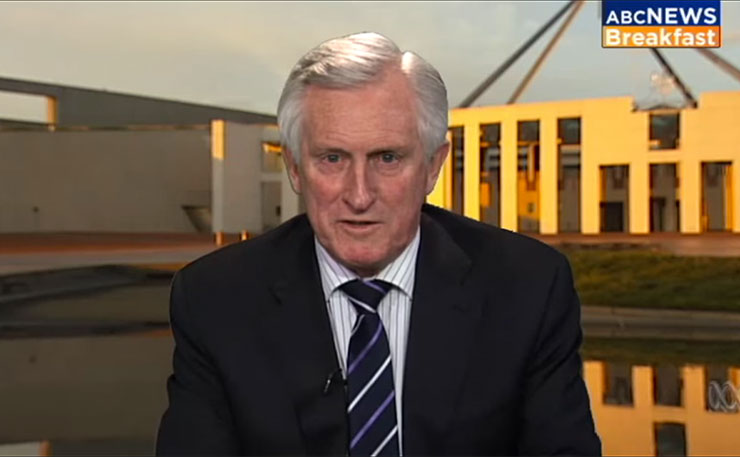
It wasn’t long after it lost the 2022 election that we started to hear how the Coalition would be focusing its attacks on immigration.
Anti-immigration is a crutch, one that political parties use to avoid facing up to Australia’s actual economic problems. Ramping up the rhetoric against migrants is not honest and courageous. It is evasive and cowardly.
By far the most galling example of this is housing. Reducing house prices is what passes as the respectable centrepiece of the Coalition’s argument for reducing immigration. Opposition Leader Peter Dutton put it this way in his May budget reply: “By getting the migration policy settings right, the Coalition can free up more houses for Australians.”
Dutton’s description of the problem is revealing. And weird. We don’t need to free up more houses, as if the policy question is how to shuffle around a fixed stock of houses until they are allocated to their most virtuous occupants. We need to create more houses.
We cannot build enough homes to support our growing population because we wrap building up in an absurd mesh of regulatory burdens that slow construction and raise prices. In the middle of a growing population, our home-building approvals have been virtually flat. Australia had fewer new houses approved in July 2024 than it did in July 2014.
The guilty regulations aren’t federal regulations, sure, but that makes it worse. It means the Coalition is attacking migrants and international students because it lacks the courage to stand up to local governments and planning bureaucrats.
Of course many of these same charges have to be levied against the Albanese government: its caps on international students will do nothing to slow house price growth.
Dutton and his colleagues have also cited the burden of immigrants on infrastructure: roads, hospitals, public transport. Again, an alternative to cutting migration then could be to build more infrastructure to cope with a growing population, regardless of the origin of that growth.
But infrastructure development in Australia is very expensive and very slow. One cause of this is high construction labour costs that are not justified by high productivity. Another is the high regulatory burden imposed on projects — particularly environmental regulation. And the Reserve Bank’s struggle to get inflation on track is making the infrastructure cost problem worse.
However, the Coalition is still shellshocked from its efforts under John Howard to introduce industrial relations reform. It is bruised from the on-again, off-again Australian Building and Construction Commission saga, reintroduced every time there is a Coalition government and eliminated every time Labor returns.
It’s true Dutton has promised to reintroduce the ABCC if elected. On Wednesday this week he said he also wants to try — again — to reform section 487 of the Environment Protection and Biodiversity Conservation Act (which expands legal standing to activists so they can object to major projects) — a policy the Coalition had to give up in government because it couldn’t get it through the Senate.
But these policies aren’t going to boost infrastructure building in any serious way. We’ve tried the ABCC before, and section 487 is a convenient scapegoat for a much deeper problem. A 2013 Productivity Commission report found that development approvals for major projects were rife with “unnecessary complexity and duplicative processes”, “lengthy approval timeframes” and a “lack of regulatory certainty and transparency in decision making”. Reforming section 487 is tinkering. It is not the root-and-branch regulatory reform required to build the needed infrastructure at scale. That would be hard. Pointing at migrants is easy.
In truth, the level of migration we’re experiencing is not unexpected or surprising. We’re on roughly the same trajectory of increasing permanent and long-term arrivals that we have been since the 1990s. Remember that our migration numbers dropped to virtually zero in 2020 and 2021. You’d expect there was a lot of deferred migration as a result. But we are only back on the pre-pandemic trend.
And while permanent and long-term arrival numbers are larger than ever before, so is our economy. And so is the need in the economy for workers. The fact the Australian political class cannot get the settings right for economic growth — and so have to shunt the blame for their own failure onto migrants and students — is damning. Dutton’s anti-immigration stance is a symptom of a very deep failure in Australian public policy.
By Chris Berg


